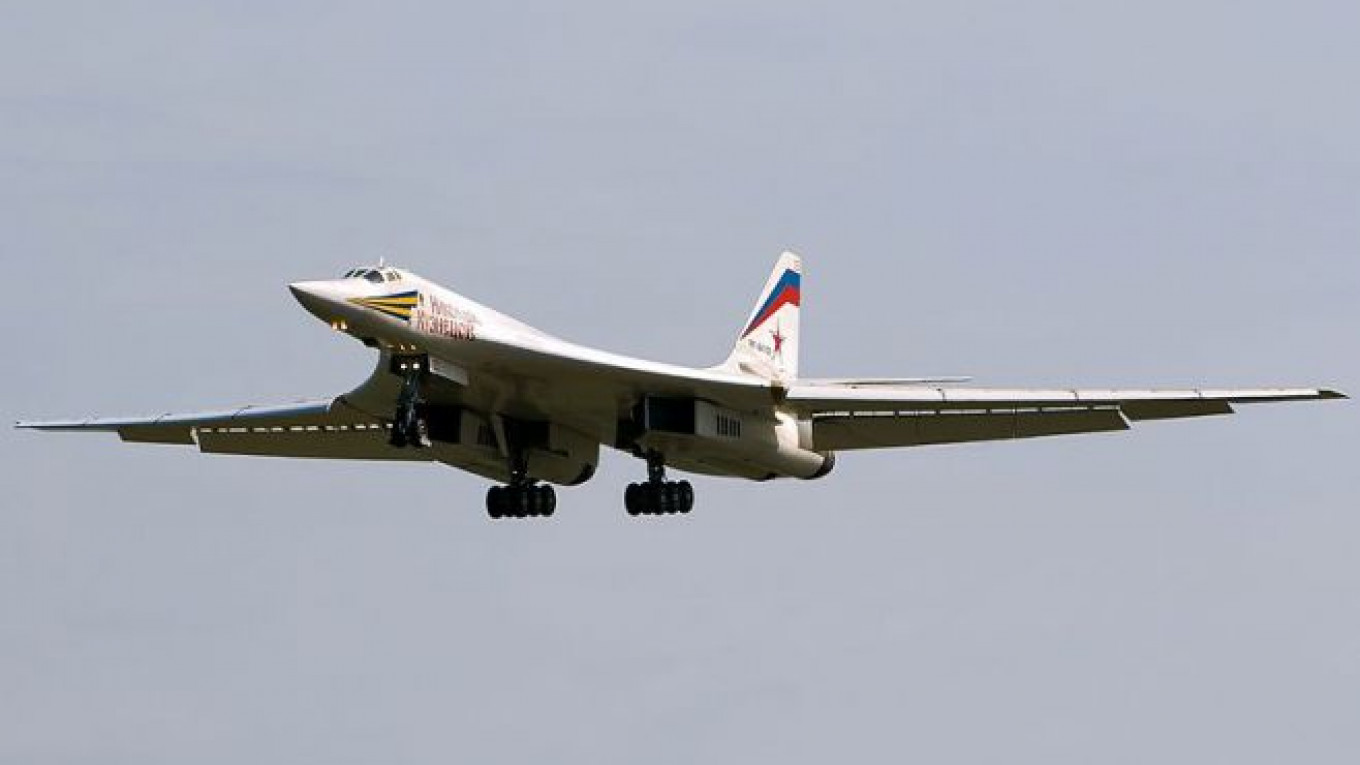Romania asked Moscow for an explanation on Saturday after Russia's Deputy Prime Minister Dmitri Rogozin, reacting to being barred from its airspace, tweeted he would return in a TU-160 strategic bomber.
Rogozin, one of the senior Russian officials sanctioned by the European Union and United States after Moscow moved to annex Crimea, was turned away when his plane tried to fly to Moscow from Moldova's breakaway Transdnestr region.
According to his tweets in English, Rogozin, who oversees Russia's powerful arms industry, was also blocked by Ukrainian interceptor jets as he tried to fly home from the Russian-speaking region of Moldava bordering Ukraine.
"Upon U.S. request, Romania has closed its air space for my plane," he tweeted. "Ukraine doesn't allow me to pass through again. Next time I'll fly on board TU-160." The supersonic Soviet-era TU-160 is Russia's largest strategic bomber.
Румыния по требованию США закрыла моему борту воздушное пространство. Украина снова не пропускает. В следующий раз полечу на ТУ-160
— Dmitry Rogozin (@Rogozin) May 10, 2014
The Romanian foreign ministry asked Moscow to clarify whether Rogozin's comments represented "the Russian Federation's official position towards Romania as an EU and NATO member."
It said it "believes the threat of using a Russian strategic bomber plane by a Russian deputy prime minister is a very grave statement under the current regional context."
It added that "the Russian Federation has broken Ukraine's territorial sovereignty ... while pro-Russian separatists are violating public order in the neighboring state."
The statement said Romania was abiding by the sanctions imposed by the European Union against Russia. Rogozin, an avid user of social media, posted on his Facebook page the Romanian message to him citing the relevant European Council decisions.
Travel bans are among the limited sanctions Western states have imposed on some Russian and pro-Moscow Ukrainian political and business leaders, including Rogozin.
Rogozin was on a visit to Russian-speaking Transdnestr, a long narrow strip of Moldova bordering Ukraine that broke away from the rest of the Romanian-speaking country in 1990 as the Soviet Union was beginning to collapse.
Moldova, one of Europe's poorest countries and Romania's eastern neighbor, is seeking closer ties with the EU, which last month said Moldovans would no longer need visas to travel to most of the bloc.
In another tweet sent one hour before he was turned away, Rogozin said: "this morning I met with the Command of the Joint Staff of Russian Forces in Transdnestr."
In other tweets, Rogozin said he attended celebrations on Friday in Tiraspol, capital of Transdnestr, to mark the anniversary of the 1945 Soviet victory over Nazi Germany.
See related story:
A Message from The Moscow Times:
Dear readers,
We are facing unprecedented challenges. Russia's Prosecutor General's Office has designated The Moscow Times as an "undesirable" organization, criminalizing our work and putting our staff at risk of prosecution. This follows our earlier unjust labeling as a "foreign agent."
These actions are direct attempts to silence independent journalism in Russia. The authorities claim our work "discredits the decisions of the Russian leadership." We see things differently: we strive to provide accurate, unbiased reporting on Russia.
We, the journalists of The Moscow Times, refuse to be silenced. But to continue our work, we need your help.
Your support, no matter how small, makes a world of difference. If you can, please support us monthly starting from just $2. It's quick to set up, and every contribution makes a significant impact.
By supporting The Moscow Times, you're defending open, independent journalism in the face of repression. Thank you for standing with us.
Remind me later.






